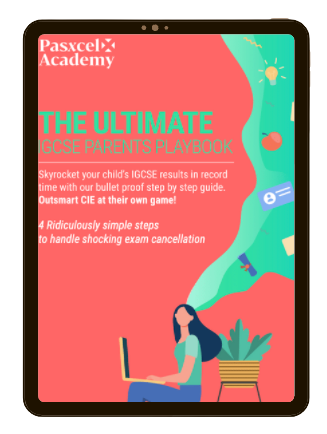The quality of your life is a direct representation of the quality of your questions. Most people tend to ask questions that will in no way improve their ascend in life, improve their relationship or make them a better person. Humans tend to ask questions that confirm our existing bias or questions that are bound to provide answers that will anger us. For example, asking your subordinate or child, why they are late? What do you think the response is going to be? One way or the other, it is going to be an excuse. One that highly likely you are not interested in listening.
If you are not interested in the answer then why did you ask the question?
It is not your fault in any way that you ask these sort of questions. None of us were taught to ask questions well. It is common knowledge that most students complete their formative years without formal training on how to question. It is then made worst by teachers and parents who use the “Because I said so” approach to silence inquisitive (sometimes joking) and curious young minds.
In his book, “Good Leaders Ask Great Questions“, renowned author John C. Maxwell talks about how mastering the art of asking questions allows one to have a better learning experience, develop and strengthen relationship as well challenge oneself to rapid growth. Taking a leave from his book, all our students are trained to sharpen their question-asking skills daily in class.
Today, I thought I will share some ways on how we could ask better questions as parents and teachers. Here are a few examples of how the right question could have an exponentially different outcome.
As a parent, you could ask these questions differently.
1. How was your day VS What was good about your day?
As you can see, the switch in questions brings about a huge difference in terms of the response that you solicit. By constantly asking the latter question, you train your child to focus on what is good and what is positive. This becomes the catalyst for two traits that every parent would seek to develop in their child; a positive outlook and a gratitude laden heart.
By wording the question differently, you are consciously encouraging your child to constantly search for the positive in their day. A habit that will eventually spill over to the areas of their life.
2. Why are you lazy (always late/eat too slow/insert any unwanted trait) VS What are the actions you think you can take to minimize or eliminate this habit that is dimming your shine to ensure your overall success?
Take note of the language of both the questions. To the person on the receiving end, it is rather clear that the objective of the question is to seek a way to insult them. How does one even answer that question without feeling slighted? It is a clear example of being spoken down to, of being treated as a second class citizen. Something we do not want our children to feel.
How about the second question? This question clearly aims to empower the person being questioned. Further, the question also hints to the subject that they have some sort of potential that we have observed and taking corrective measures is in their best interest to achieve greater heights of success. This genre of question is my personal favorite simply because it forces the subject to come up with an action plan that we can both maneuver together, with an understanding that it will benefit the subject more than the person asking the question. Most importantly, the child leaves the discussion with his/her dignity intact and an additional set of task with clear, measurable outcomes (as well as a timeline) to execute on his/her own.
How about if you are a teacher? What are the questions you can choose to ask differently?
Here are some examples.
1. Why didn’t you do your homework VS What can we do to ensure that you can get your homework done the next time around?
Instead of a condescending, judging approach of the first question, the second question hints teamwork. It signals to the student that there might be something I, as a teacher, did not take into consideration. Does he/she need further explanation on how to complete the work? Should I be assigning a peer mentor (another exercise that we’ve found creates amazing results at our school)? This simple question opens up avenues for dialogue as well as providing an opportunity for teachers to better understand each student’s internal world.
Most importantly, this question draws attention to finding a solution rather than encouraging students to find excuses to justify their actions.
2. Do you understand? VS Can you summarize what you understand from today’s class?
This is one of the questions we drum into all our teachers when they go through training before being allowed to teach. To me, it is a huge change in how classes are conducted. With the first question, you are not seeking feedback. You are simply seeking confirmation and hoping that all is right in the world. Whereas the second question allows you to truly understand whether your class has been effective. Are the students able to tell the difference between simple and compounding interest in their own words? Are they able to recall most of what has been taught? This question serves many reasons. It tells you, as a teacher,
a) if your class has been interesting
b) have you flag posted your lessons and created memory hooks for them to easily store and retrieve lessons
c) what is the lingo students choose to describe things
d) what are the things you should be doing more/less
e) how to improve your presentation to achieve your goals
f) has your communication been effective (did students really understand or have you been putting them to sleep)
You can learn these and so much from your students by just tweaking the question, ever so slightly.
If you found the above article helpful and gave you tips on how to ask better questions, you should subscribe to our mailing list via this link for more! (and also receive exclusive and latest updates, news and articles related to parenting, online homeschooling and IGCSE from experts within the community).

Accounting, Business Studies, Economics & Financial Literacy
BA(Hons) Finance, Accounting & Management, Sunway University
Chartered Accountant, ACCA.
Yuventhiran Nadarajan is a father, husband, speaker and entrepreneur. But he is best known among students and parents alike as an educator. Teacher Yuven believes that the current schooling system is outdated beyond measure and is the last piece of surviving antiquity in our fast-paced ever-changing world.













